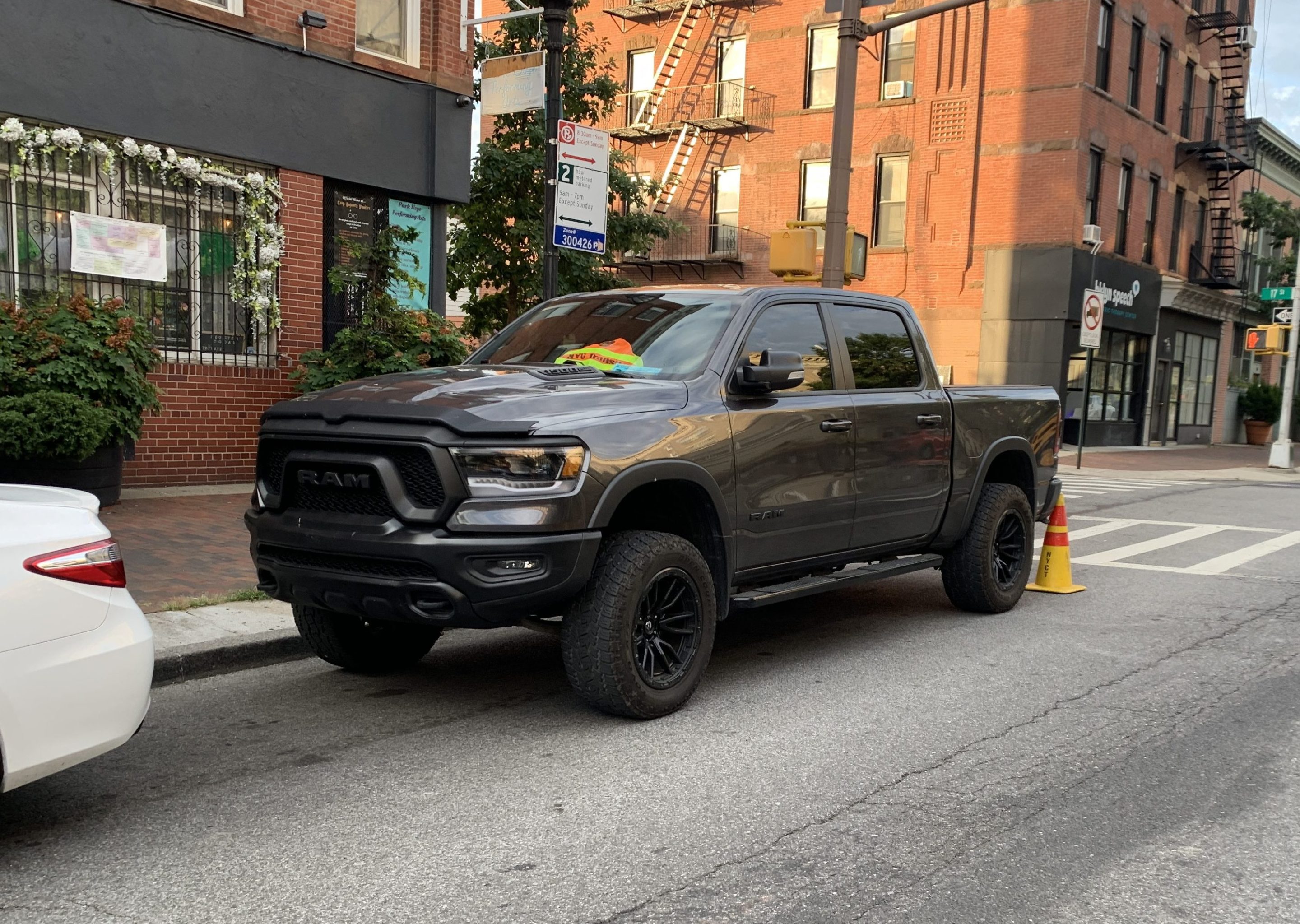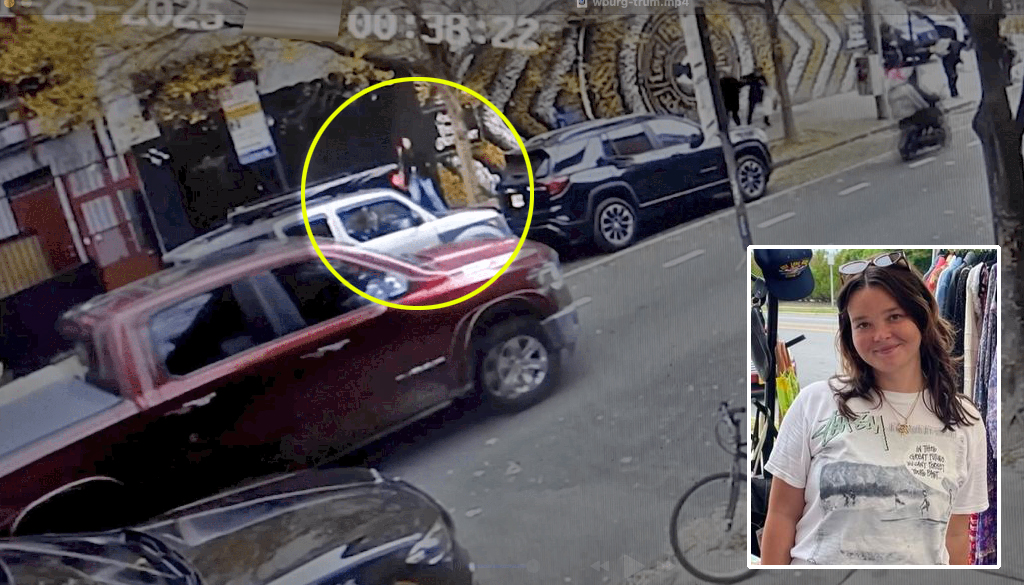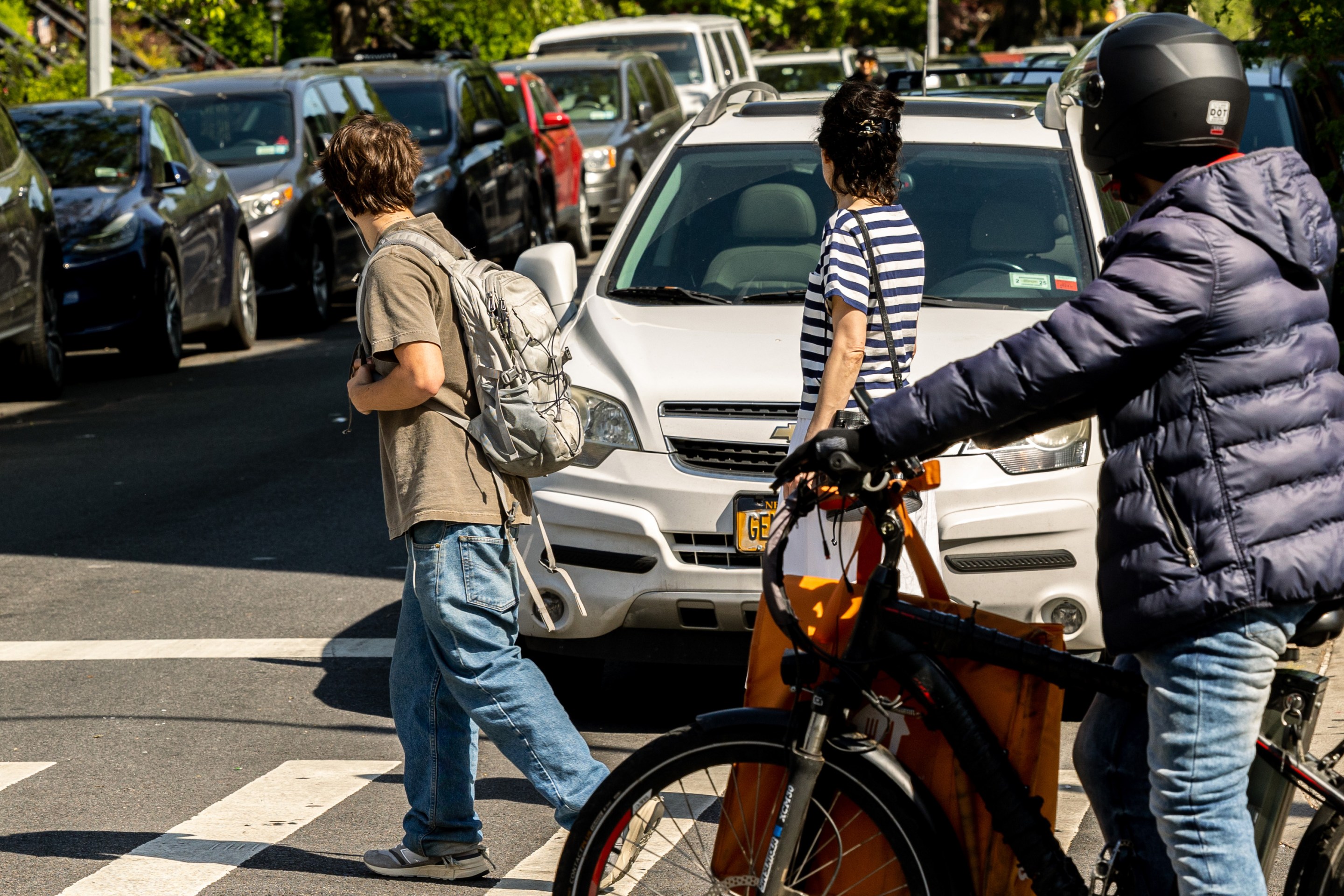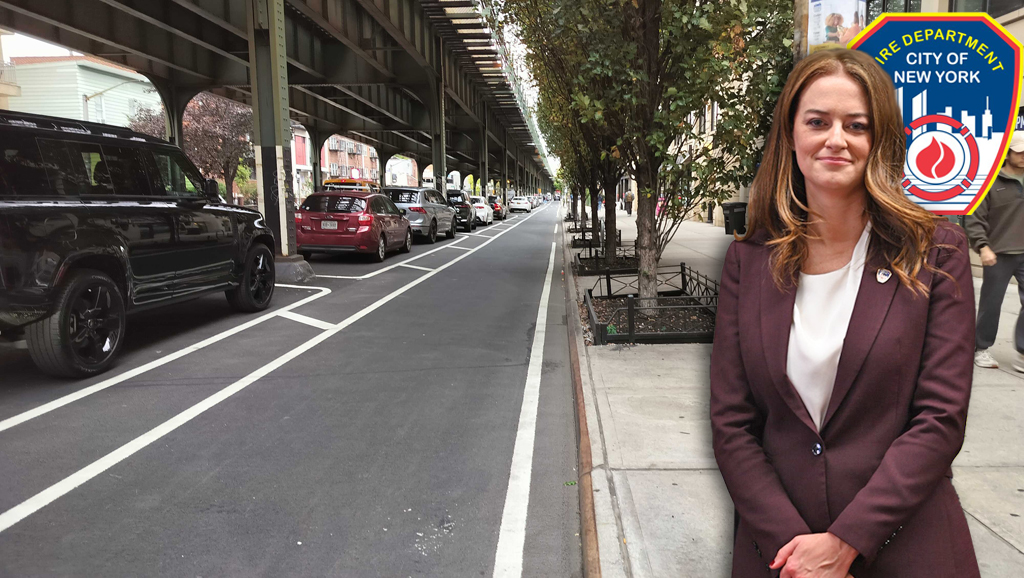A new bill in the New York State Senate would require all new cars registered in the state to have speed-limiting technology by 2024.
The legislation, introduced by Manhattan State Sen. Brad Hoylman on Aug. 12, would also require the Department of Motor Vehicles to set rules for vehicles over 3,000 pounds, such as SUVs and pick-up trucks, ensuring that they have “direct visibility of pedestrians, cyclists and other vulnerable road users from the drivers position.”
These blind spots are a huge problem among oversized assault cars, which sit high off the road and are involved in an increasing share of pedestrian fatalities and injuries. If the measure became law, some monster trucks might not be “street legal.”
Hoylman said that bill, which he believes is the first in the nation, could reduce traffic fatalities by 20 percent, prevent many crashes, and spur a national trend.
“We think that, if New York goes first, we could push the marketplace and have an effect across the country,” he told Streetsblog, decrying the present “patchwork” arrangement in which only some new cars have the advanced technology.
But Hoylman’s bill may not pass muster: The federal government, not individual states, is generally tasked with regulating auto-safety standards. (Emissions, however, are a different story. California and some other states have tougher emissions standards than the feds, for example, which President Trump tried to abolish.)
“I appreciate the intent, but my first question is whether New York State has jurisdiction over car features like Intelligent Speed Assistance and Autonomous Emergency Braking,” said Harvard researcher David Zipper, who noted that the National Highway Traffic Safety Administration is responsible for car design. “That makes some sense, since cars are frequently driven across state lines. I expect that automakers and NHTSA alike would be skeptical of any assertion that a state like New York can dictate automobile-safety features.”
ISA, sometimes called “flexible speed governors,” use GPS-linked map data and a car’s own camera to make it difficult to speed. A determined driver might override the system, but generally the devices make speeding much more difficult. As Jalopnik put it, “ISA isn’t designed to stop you from speeding, but merely to dissuade you.”
Zipper recently argued in Bloomberg City Lab that New York City’s recently announced ISA pilot, in which it outfitted 50 vehicles, or .2 percent of the city’s 24,439 fleet, with the technology, was the way to go — because cities could use their purchasing power to make ISA ubiquitous.
Hoylman’s proposal also seeks to make standard several other “active vehicle safety features” that have become common on higher-end new cars in recent years, such as AEB (which automatically activate the brakes in order to avoid or at least mitigate a collision) and Emergency Lane Keeping Systems (which automatically apply measures to slow a car and keep it straying from the lane).
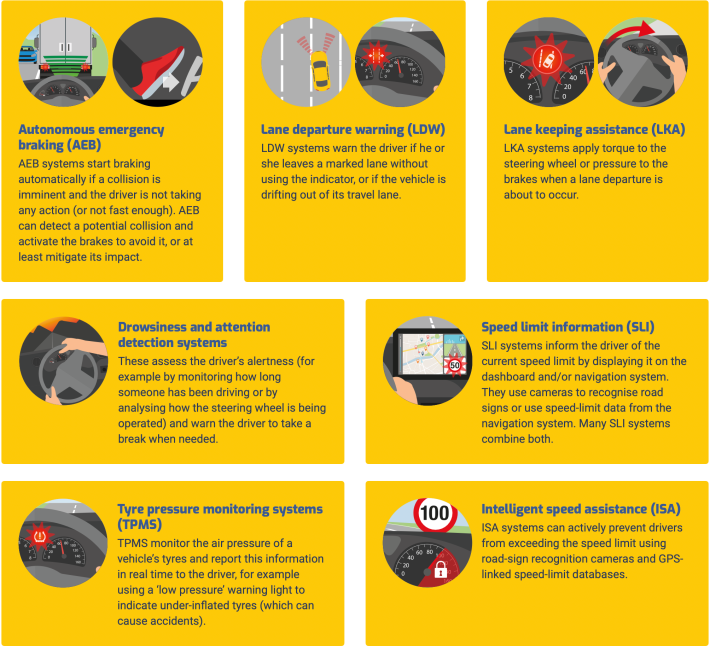
Others countries have already gone all-in on this technology. The European Union this year mandated ISA in all new vehicles introduced in the European market and in all new cars sold in its jurisdiction by July 2024.
But Americans generally resist laws that curtail their individual freedoms, especially when it comes to car driving. Thus, MotorBiscuit, a website for car enthusiasts, predicts that ISA regulations “likely won’t happen anytime soon” here.
The bill comes as America has been experiencing a pedestrian death crisis. Traffic injuries and fatalities have risen steadily in the past 22 years, after they fell for the previous 20, reaching a 40-year high of 7,485 pedestrians killed in 2021. The reasons are manifold: the growing popularity of bigger cars such as SUVs and pickups, badly designed roads, and an epidemic of speeding from pandemic-loosened inhibitions have all contributed.
“The impetus of the bill is the failure of the promise of Vision Zero,” Hoylman said, pointing to the 273 traffic deaths last year in New York City, the bloodiest year since the advent of Vision Zero in 2014. and noting that 2022 was on pace to match that dubious record.
Hoylman’s staff said that they are seeking an Assembly sponsor for the bill and would be holding hearings on it when the Legislature comes back into session in January.
“Requiring basic safety features on new cars is a one step New York State must take to make our streets safer. We thank Sen. Hoylman for advancing this common-sense measure,” said Elizabeth Adams, senior director of advocacy and organizing for Transportation Alternatives. “We must also increase our investment in transit and safe streets improvements to reduce car dependency statewide.”
